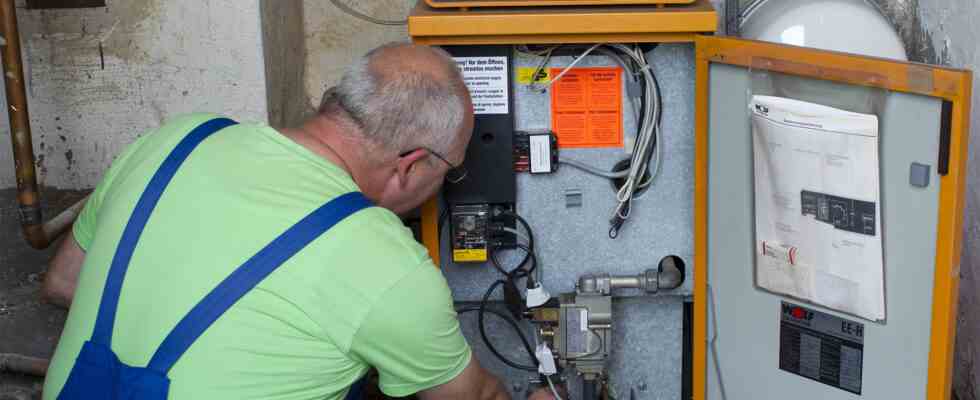Status: 03.12.2022 4:18 p.m
Regularly maintained heaters use less energy. In the meantime, an examination is even mandatory. But heating companies are working at full capacity. The result is sometimes months of waiting.
Alexander Kreutner is a master heating engineer and managing director of a plumbing and heating company in Duisburg. As in most heating companies, the order situation is extremely tight. “The incoming orders exceed to a large extent what the operational capacities allow,” says Kreutner.
High subsidies for new heating systems
One reason: Switching to a modern heating system has been quite attractive since the climate package passed in 2020. Those who opt for a heating system that is operated entirely or partially with renewable energies can apply for a subsidy.
Switching from an oil heating system to a heat pump is particularly heavily subsidized by the federal government. The heating market has been growing continuously ever since. In addition, the extreme increase in gas prices means that more and more people want to optimize their heating systems or even have them replaced.
New rules from 2024
In addition, private households and companies are also required by the state to save heating energy. “The best way to save fuel and costs in the medium and long term is for any type of heating system to be serviced and optimized as promptly as possible,” says Helmut Bramann, General Manager of the Central Association for Sanitary, Heating and Air Conditioning (ZVSHK). Owners of gas-powered systems are legally obliged to have their heaters checked and, if necessary, replaced within the next two years.
In addition, a new building energy law will come into force in 2024. It stipulates that new heating systems must be operated with a minimum share of 65 percent from renewable energies. The demand for modern heating systems, especially heat pumps, will continue to increase accordingly.
Up to 18 weeks waiting time on average
The overburdening of companies is not new: the national average has been waiting for a long time of 14 to 18 weeks, explains Frank Ebisch from the ZVSHK. The wait depends on the order: A complete heating renovation has a longer lead time than, for example, heating optimization or maintenance.
But now the craftsmen are also struggling with ongoing supply bottlenecks and the increase in the price of materials. These fluctuating costs mean that installers have to carry out costly recalculations. This takes time and is only for professionals. Their lack is clearly evident in this situation.
Close ties to a company helps
The companies recommend making appointments for advice at an early stage. In the event of acute heating failures, action is taken as quickly as possible despite high capacity utilization. Otherwise, longer waiting times must be expected. For years, the Guild of Sanitary, Heating and Air Conditioning Berlin has been appealing to owners to maintain a close relationship with trusted tradespeople in the event of an emergency. In general, the earlier you arrange a consultation appointment, the sooner an implementation appointment will follow.
Peter Küpper, head of heating operations in Bonn, even advises holistic energy advice. Before a new heating system is bought, the building should be checked holistically for energy efficiency. Küpper also sees a huge opportunity for the industry: “Never before has there been so much going on in the heating market. We can now implement the energy transition in practice.” However, there is a need for action on the subject of further training. In addition, the profession must be made more attractive for the younger generation.

